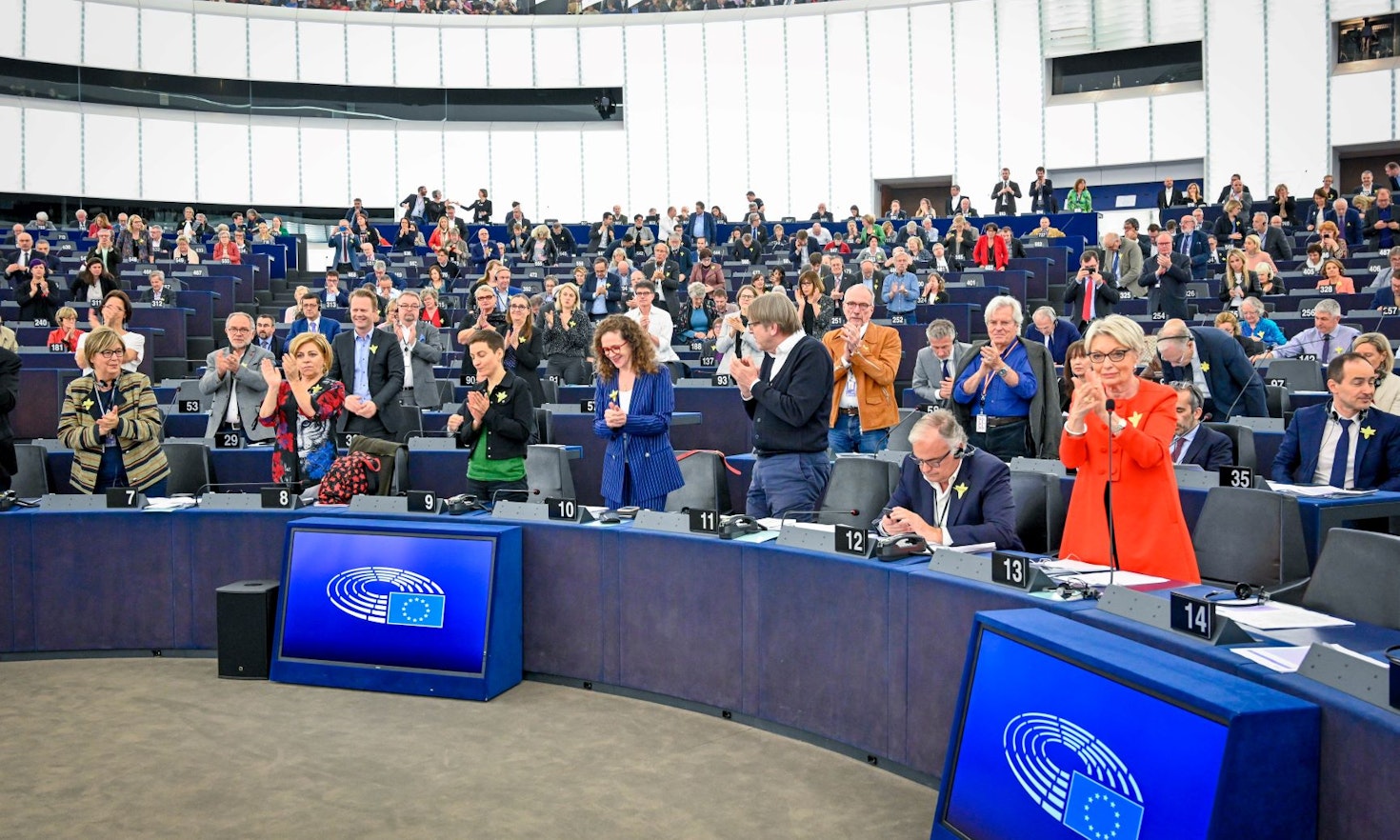EP plenary session: One last time

Financial supervision, the future of Europe, an international agreement on olive oil, more transparent working conditions in the EU, the promotion of energy-efficient road transport vehicles. These are just a few of the many issues dealt with by the European Parliament in the debates during its last plenary session. From 15 to 18 April 2019, the European Parliament met for the last time in Strasbourg in its current constellation. The session was overshadowed by the major fire at Notre Dame Cathedral in Paris, the bus accident in Madeira but also by the latest extension of Brexit, which had been decided a week earlier. Many Members of the European Parliament gave their last speech as members of Parliament. Some seemed sentimental but also concerned about what the forthcoming elections might bring. Will the Eurosceptic parties win a majority in the EU parliament as a UK member predicts during the debate?
The plenary session was opened by the President of the European Parliament, the Italian Antonio Tajani, who has held this position since January 2017. His first words were in condemnation of the arrest of Nasrin Sotoudeh, a human rights activist in Iran. On behalf of the European Parliament, he called for her immediate release. In his last speech as President, he also referred to the European Parliament as the central institution in Europe: “I am sure that everyone here wants more powers for the European Parliament.”
“The citizens voice in the EU” is the title of one of the Parliament’s brochures, which visitors can find at the citizen’s entrance to the parliament building. It explains the main achievements of the EU and how its institutions work, especially the parliament, in an accessible format. Unfortunately, the wider public do not perceive the European Parliament as the voice of the citizen It is regarded as too abstract, too far away, too bureaucratic. Does the parliament’s work really concern us? Do we understand what it does? More importantly, do we need it? The European Parliament will be re-elected in a month. How many citizens have informed themselves about these elections and the available candidates? Not many I guess. The electoral turnout for the last European elections was only 42.61% in the whole EU, the highest turnout was registered in Belgium, the lowest in Croatia. Sad but true. The EU and in particular the parliament have a problem in communicating what they do and why they are important.
A visit to the European Parliament in Strasbourg highlighted once again to me how pivotal the work of the parliamentary assembly is for all of us, it is a pity so little information about its relevance reaches us in our daily lives. The European Parliament is the institution over which we as citizens have direct influence – with our vote and our choice. Even if it seems that the important decisions are taken by the Council and even if it’s frustrating to see most of the seats empty even during the last plenary session: the Parliament is the central discussion forum for citizens, where debate, critical scrutiny, compromises and disagreements take place and are visible. All decisions and discussions are available online, in video or audio format, in 23 languages. Since its foundation, the powers of the EU Parliament have increased steadily, for example regarding the election of the Commission or the budget. It is up to us to decide what kind of policies are to be promoted there: conservative, social democratic, liberal, green or right-wing.
Donald Tusk, the President of the European Council since 1 December 2014, delivered a speech on the withdrawal of the United Kingdom on the second day of the session. He said that he didn’t want to stop dreaming about a united Europe. It’s only one of the many topics to be discussed in the following days. The packed agenda of the plenary session confirmed that the Members of the European Parliament are dealing with many different subjects. Some are geopolitical, others very technical, some items on the agenda have titles, which are difficult to grasp. But all issues concern us citizens, our work, our leisure time, our rights and obligations, our living together – sometimes directly, other times indirectly.
751 people from 28 member states currently represent the citizens voice in Parliament. 217 out of 751 members belong to the European People’s Party, 189 to the Social Democrats, 74 to the Conservatives and Reformists, 68 to the Alliance of Liberals and Democrats for Europe, 52 to the United European Left, 51 to the Greens/European Free Alliance, 42 to the Europe of Freedom and Democracy Group, 40 to Europe of Nations and Freedoms, 18 are independent. Following the elections on 26 May, the new Parliament is expected to meet for the first time on 2 July 2019.
After Donald Tusk, Jean-Claude Juncker gave his speech in front of the Parliament. He will remain President of the European Commission until 31 October 2019, the day on which the United Kingdom has to decide on its future in the EU. Junker argued that this Brexit extension until October allows the EU to focus on other priorities. He concluded his speech with the words: “Europe will go on”.
The question is how will it go on? And, perhaps of greater immediate importance is how many people perceive the upcoming elections as their choice.
 | Greta Klotz is researcher and PhD student at the Institute for Comparative Federalism, Eurac Research. Holding a degree in Political Science and History, her main fields of interest are local governance in Europe, autonomy issues, cross-border cooperation and participatory democracy at local level. Since 2012, she has managed the Winter School on Federalism and Governance with great passion. She enjoys spending time with her family and friends and shaping local politics as local councillor in her home village. |
Citation
This content is licensed under a Creative Commons Attribution 4.0 International license except for third-party materials or where otherwise noted.







